DRE Composite Course
The Blueprint
For Stress Free Composites
Real World
Dental Restorative Training
To Develop Your Confidence
Real World Dental Restorative Training
To Develop Your Confidence





Composite Dentistry Doesn’t Need
To Be
This
HARD
Let’s face it - restoring teeth with subgingival cavities and achieving tight contacts is much harder than it looks on social media.
Dental school no longer fully prepares us for the complexities of real-world dentistry, leaving us frustrated and our patients disappointed.
You and your patients deserve better.
This is where the DRE Composite Course comes in.
Solve Your Restorative Issues For Good
With Composite

Say goodbye to:
❌ Wasting time sifting through a drawer full of matrices
❌ Running late stressing over moisture control
❌ Having awkward conversations with your patients over teeth you could not restore
Instead provide well-bonded composite restorations that your patients will love, due to our industry-leading composite bonding courses at DRE.
And we’ll provide everything you need from day 1.
 Composite
Composite
Say goodbye to:
❌Wasting time sifting through a drawer full of matrices
❌ Running late stressing over moisture control
❌ Having awkward conversations with your patients over teeth you could not restore
Instead provide well-bonded composite restorations that your patients will love.
And we’ll provide everything you need from day 1.
No Extra Cost, No Extra Hassle
No need to order anything yourself, we provide everything you need to practice the DRE way

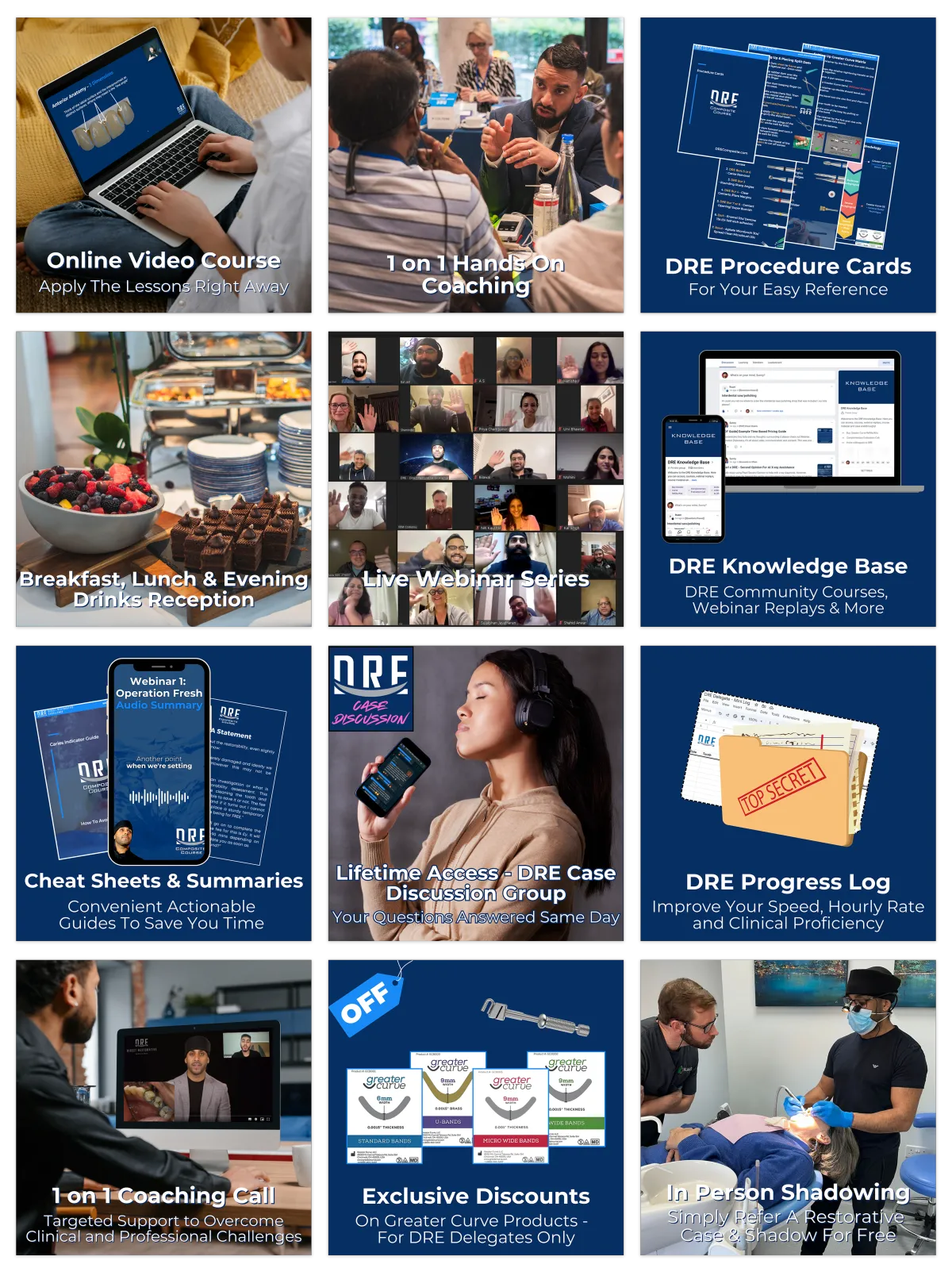
And Much More!
Click The Orange Button To See Full Course Details
No Extra Cost, No Extra Hassle

No need to order anything yourself, we provide everything you need to practice the DRE way

And Much More!
Click The Orange Button To See Full Course Details
How It Works - Delegate Success Plan


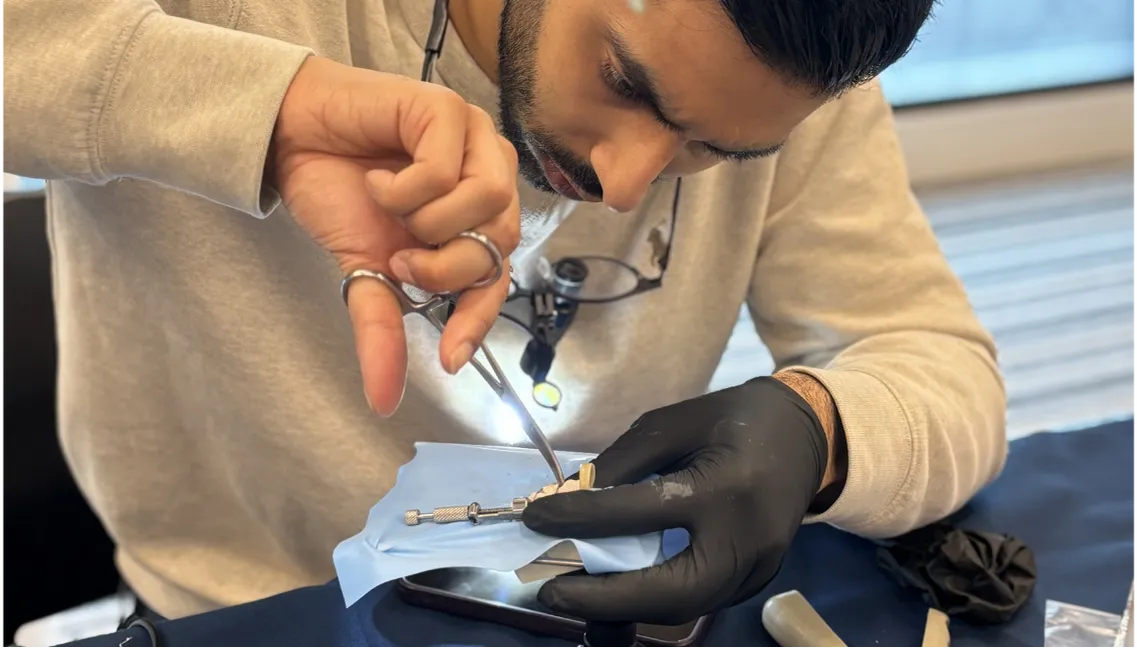





How It Works - Delegate Success Plan








The Choice Is Yours
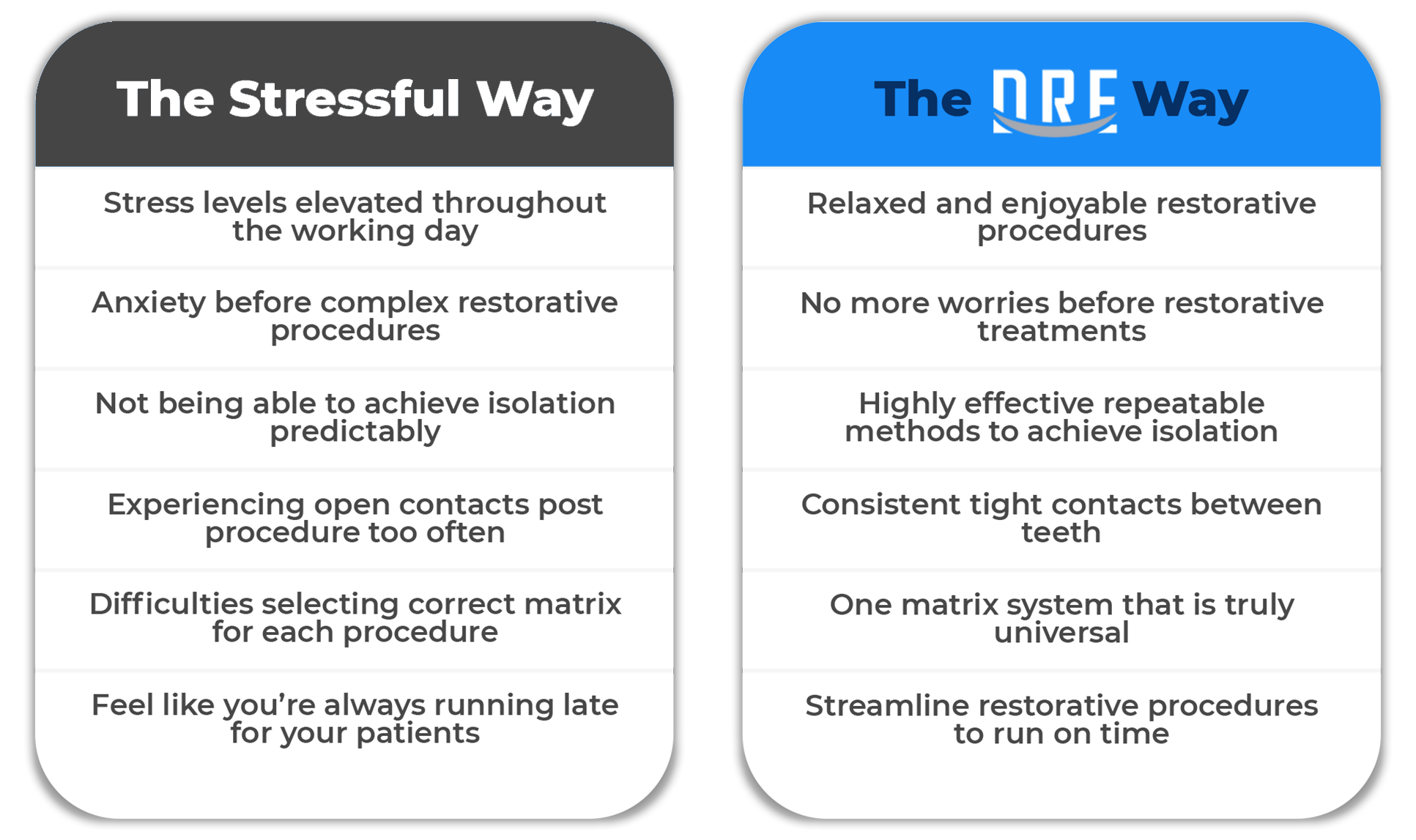


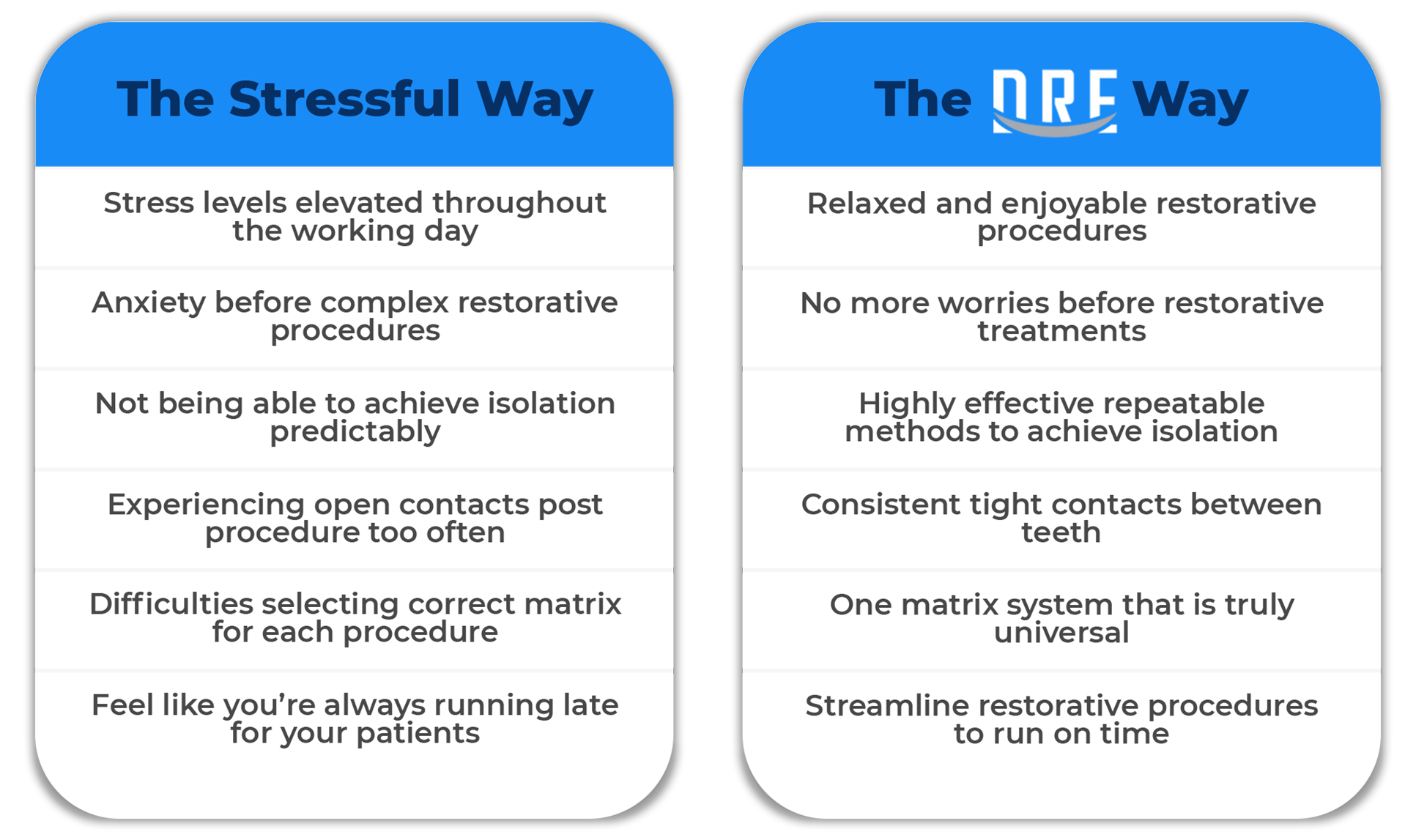
The Choice Is Yours
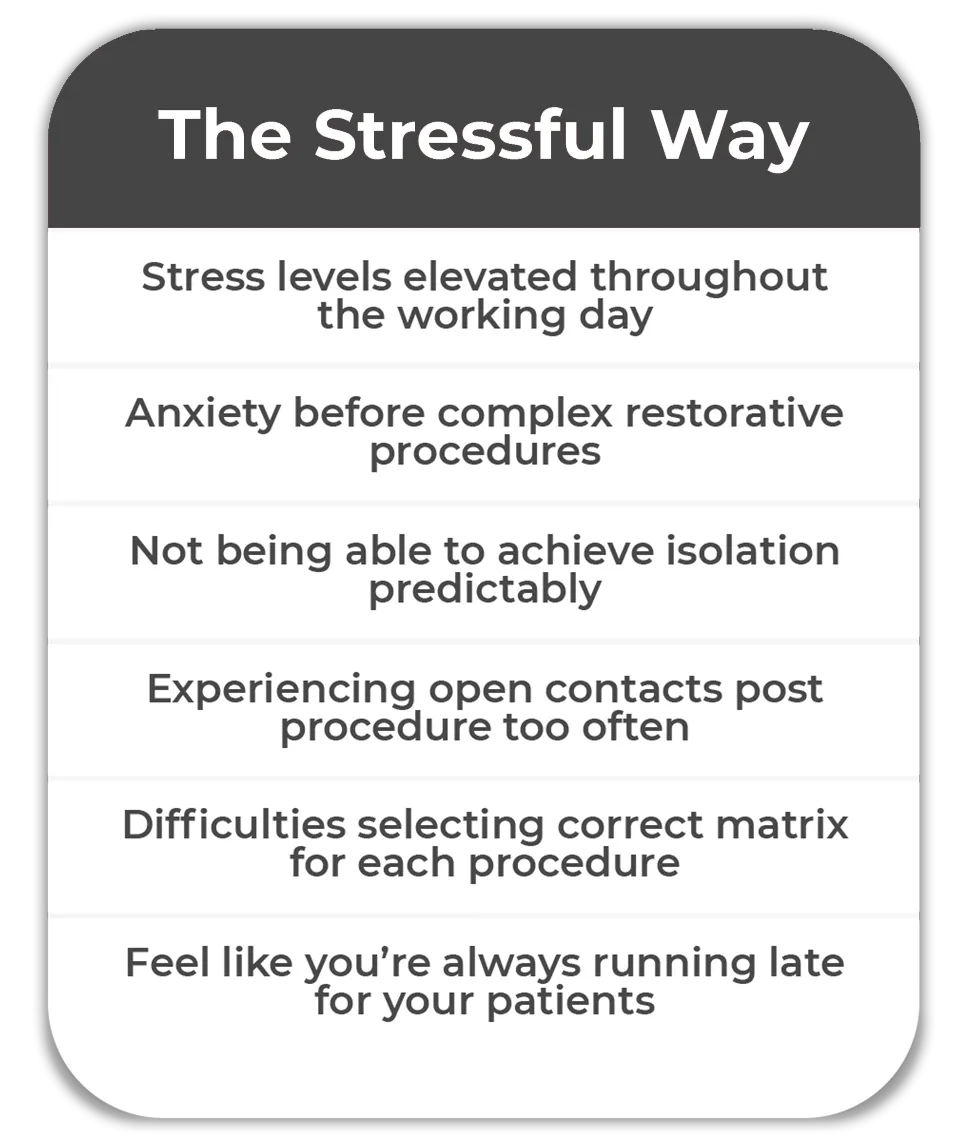

Why Our Colleagues Recommend Our Courses
Dr Kasim Butt
- Restorative Consultant
Dr Alex & Gaynor
- Dentist & Therapist

Dr Zayd & Dr Ahmed
- Dentists
Dr Kasim Butt
- Restorative Consultant
Dr Alex & Gaynor
- Dentist & Therapist
Dr Zayd & Dr Ahmed
- Dentists
Over 1,000+ dentists and therapists trust our composite bonding courses, training
and products to help them deliver their best work.
Free Taster CPD:
Webinar -
Conquer Composite Challenges
This online composite course will provide techniques for you to immediately apply in practice.
You won’t believe how much value we’ve packed into the session.
CPD Certificate awarded upon completion.
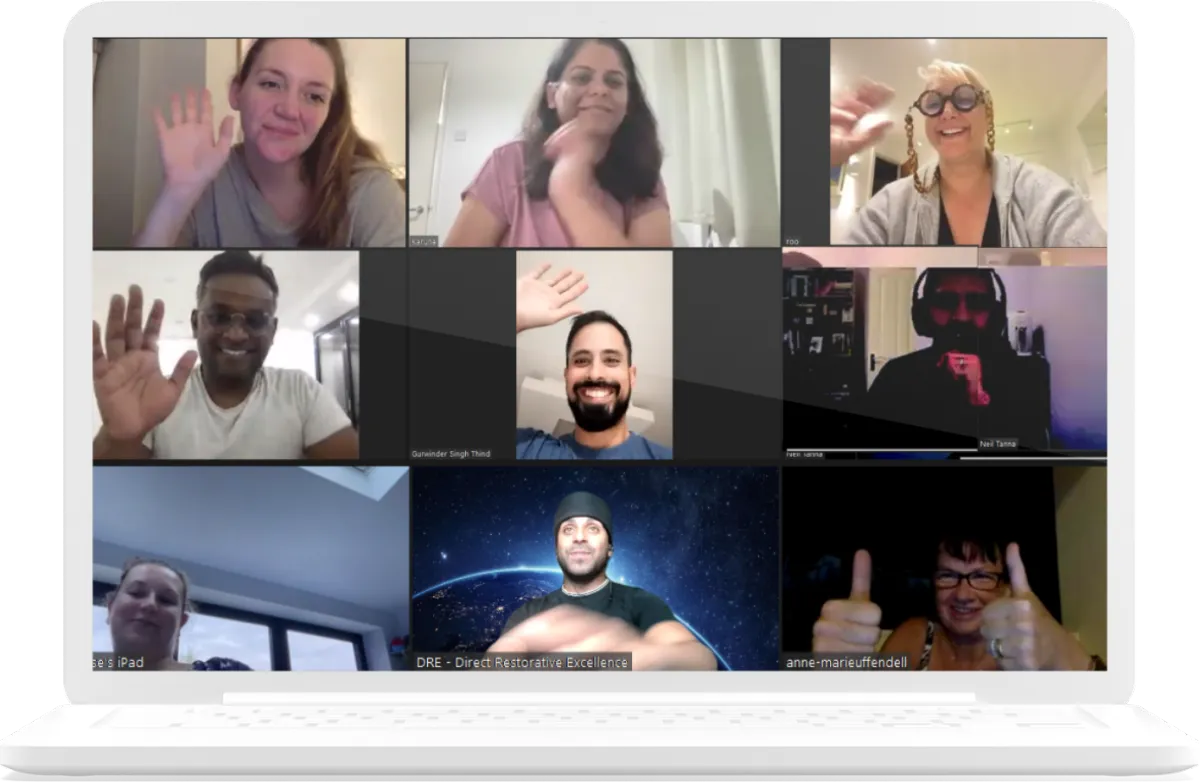
Buy Official Greater Curve Products In The UK
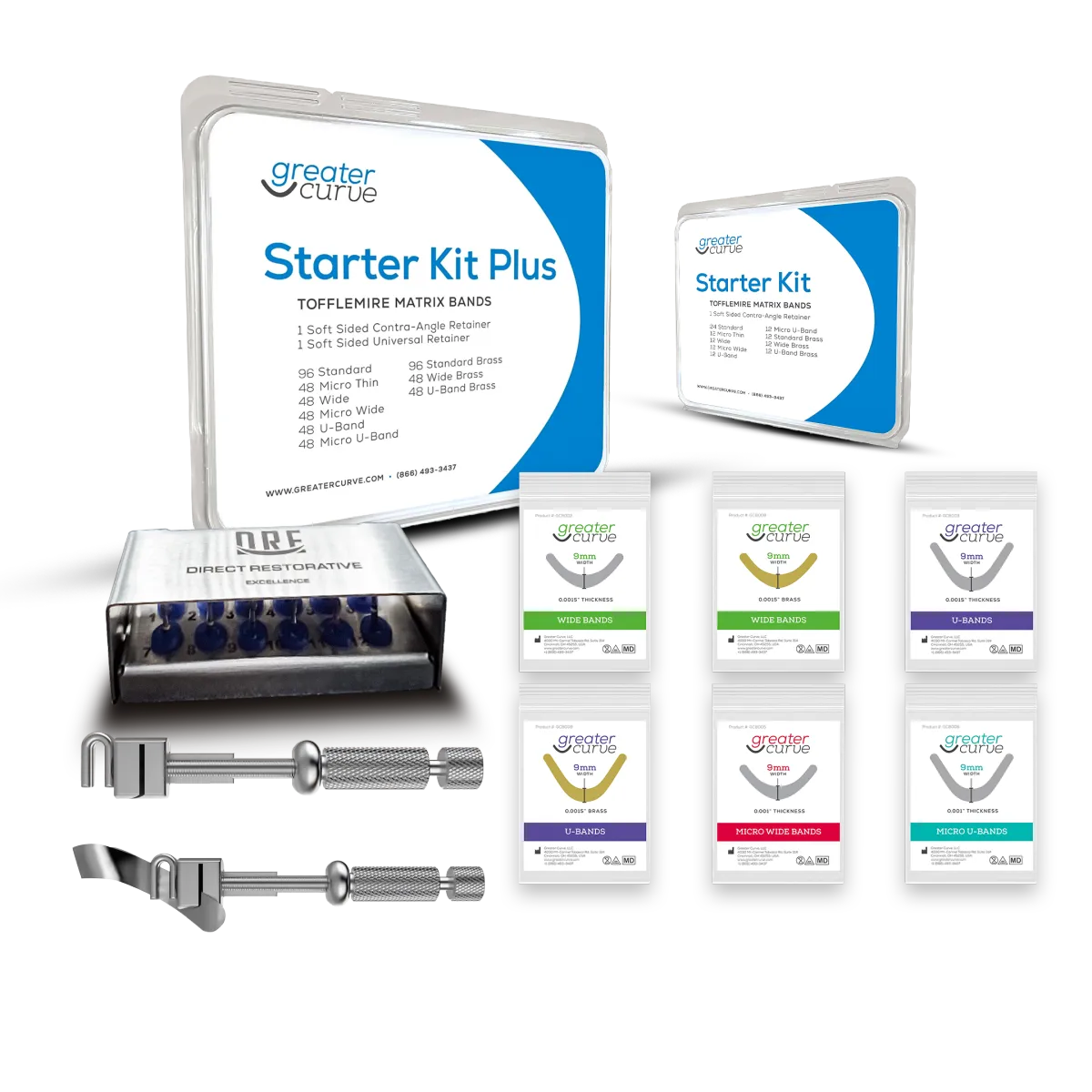
Only From

DRE Composite Course Delegates Enjoy Exclusive Discounts In The Shop
Free Taster CPD
Webinar:
Conquer Composite Challenges
This online training will provide techniques for you to immediately apply in practice.
You won’t believe how much value we’ve packed into the session.
CPD Certificate awarded upon completion.

Buy Official
Greater Curve Products In The UK
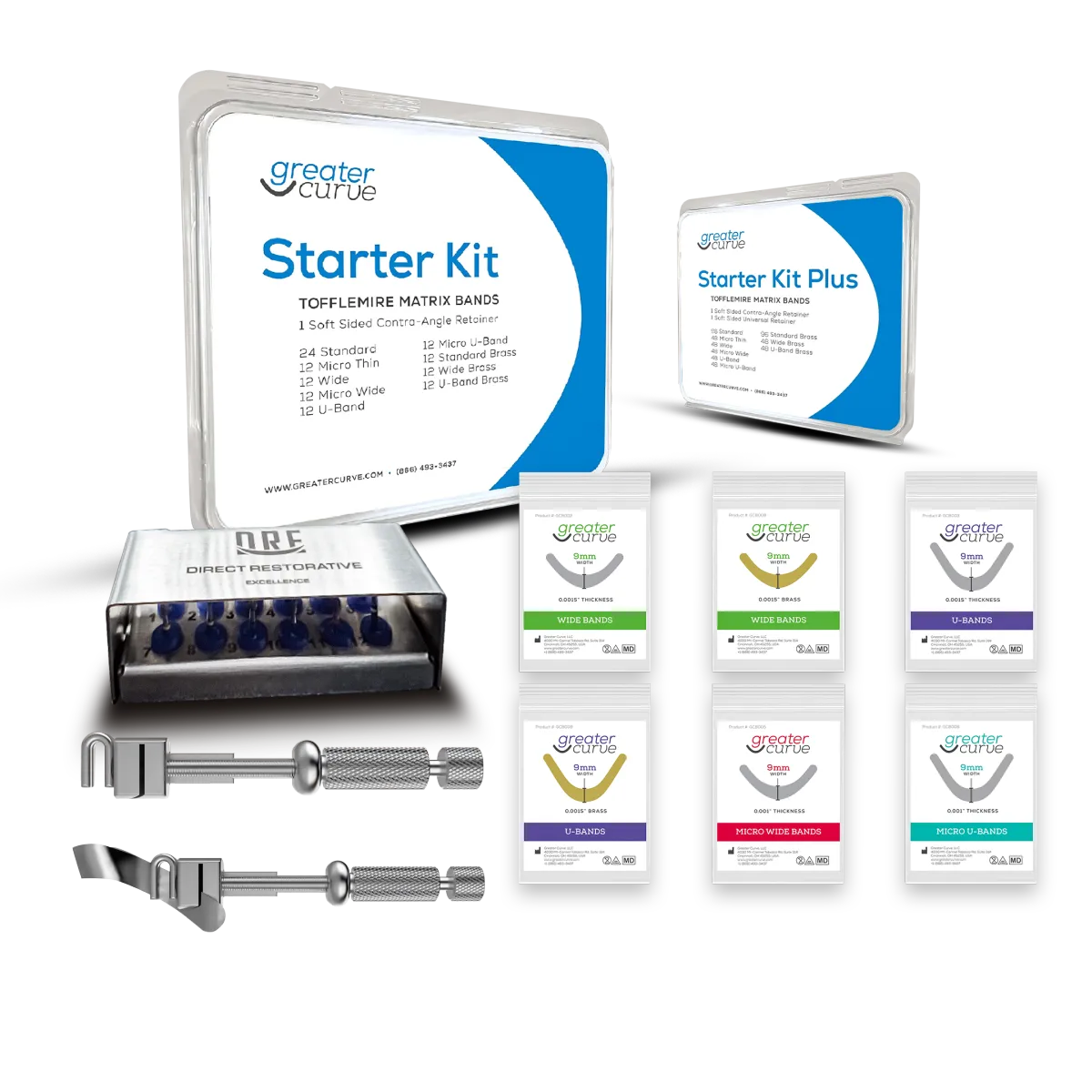
Only From

DRE Composite Course Delegates Enjoy Exclusive Discounts In The Shop
We’ve Been Featured On:



Address
Office One
Coldbath Square
Farringdon
London, England
EC1R 5HL
Menu
Company
©2026 DRE Composite Ltd - All Rights Reserved
©2026 DRE Composite Ltd - All Rights Reserved
